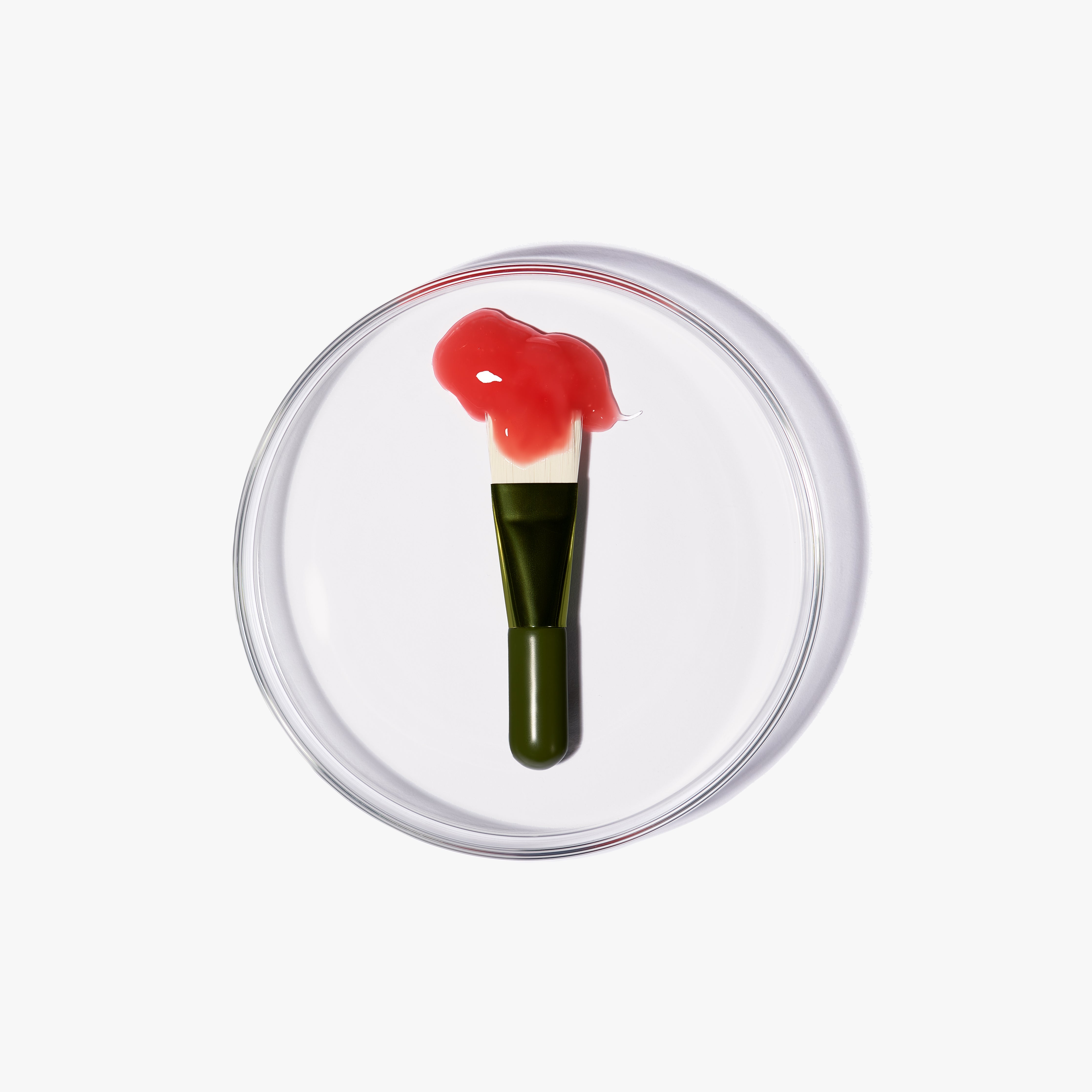Hyaluronic Acid, often called HA, is a substance your body naturally creates. Think of it as your skin’s own internal moisturizer. It is a type of sugar molecule known as a humectant, which means it draws moisture from the air and holds it in your skin.
This amazing ingredient can hold up to 1,000 times its weight in water. This ability makes it a powerhouse for hydration, helping your skin look plump, dewy, and feel comfortable.
Not all Hyaluronic Acid is the same. It comes in different sizes, or molecular weights. Larger HA molecules sit on the surface of your skin, providing immediate surface hydration and a smoother look. Smaller molecules can work on a different level, delivering hydration that feels more sustained.
The Top 5 Benefits of Using a Hyaluronic Acid Serum
Using products with hydrators like Hyaluronic Acid can bring visible benefits to your skin. Here are five key ways it helps support a radiant, healthy-looking complexion.
Delivers Intense Hydration The main benefit of HA is its incredible ability to provide moisture. When your skin is well-hydrated, it looks dewy and feels soft and supple. This boost of moisture can help skin feel more comfortable throughout the day.
Gives Skin a Plumper Look When skin cells are properly hydrated, they swell slightly. This effect helps to temporarily fill in the look of fine lines and wrinkles. The result is a complexion that appears fuller, smoother, and more youthful.
Supports Skin Barrier Function Your skin has a natural moisture barrier that protects it from the environment. Dehydration can weaken this barrier. By keeping your skin hydrated, HA supports a strong moisture barrier, which helps your skin feel more resilient against daily stressors.
Improves the Appearance of Skin Texture Dry or dehydrated skin can often look and feel rough. By flooding the skin with moisture, Hyaluronic Acid helps create a smoother canvas. Skin feels softer to the touch and looks more even.
Feels Soothing and Calming Hyaluronic Acid is generally very gentle. Its profound hydrating properties can help soothe and comfort the skin. This makes it a great choice for nearly all skin types, including those that feel sensitive or easily irritated.
The Big Debate: Hyaluronic Acid vs. Vitamin C - Which is Better?
A common question is whether Hyaluronic Acid is better than Vitamin C. The truth is, they aren't rivals. They are powerful allies that perform very different, but complementary, jobs for your skin. It’s not about choosing one over the other; it’s about understanding how they work together.
Hyaluronic Acid: The Hydrator HA’s primary role is to hydrate. It acts like a sponge, pulling water into the skin to keep it looking plump and feeling moisturized. Its main purpose is to address dehydration and support the skin's moisture content.
Vitamin C: The Protector and Brightener Vitamin C is a potent antioxidant. Its main job is to help protect the skin from environmental stressors that can lead to a dull appearance. It also helps to visibly brighten the look of an uneven skin tone. Our Biotic Radiance-Boosting Hydrator uses 3-O-Ethyl Ascorbic Acid, which is a stabilized form of Vitamin C known for being effective yet gentle.

Hyaluronic Acid brings the water, and Vitamin C helps brighten and protect. Using both gives your skin comprehensive support.
So, how do you use them together for the best results? It’s all about application order. For a deep dive, you can learn how to properly layer your skincare. The general rule is:
- Step 1: Apply your Vitamin C serum to clean, dry skin. Allow it a minute or two to absorb fully.
- Step 2: Apply your Hyaluronic Acid-based product on top to infuse the skin with hydration and lock in moisture.
How to Maximize Hydration with Your Nuebiome Routine
To get the most out of any hydrating product, there is one crucial rule: apply it to damp skin. Because humectants like Hyaluronic Acid pull water from their surroundings, applying them to a damp face gives them the moisture they need to work effectively. If applied to very dry skin in a dry environment, they could potentially pull moisture from the deeper layers of your skin, which you want to avoid.
A thoughtful routine can amplify these benefits.
Start by preparing your skin after cleansing. A facial essence is the perfect way to dampen the skin while delivering an initial wave of nutrients. The Biotic Glow™ Ferment Essence is an alcohol-free mist that balances and hydrates. It uses a skin-conditioning bio-ferment, Lactobacillus Ferment Lysate, and a touch of Glycolic Acid to gently refine the skin’s surface, leaving it perfectly prepped for what comes next.

While your skin is still damp from the essence, apply your hydrator. Our Biotic Radiance-Boosting Hydrator is a silky, oil-free moisturizer designed to seal in that hydration. It features its own supportive dose of Lactobacillus Ferment Lysate to complement the essence, along with the brightening power of Vitamin C. This two-step process creates a "moisture sandwich," locking in hydration for a complexion that looks radiant all day.
Nuebiome formulas are created as a symphony of ingredients. We don’t rely on just one hero. Instead, we combine advanced bio-ferments, botanicals, and next-generation hydrators to support your skin’s ecosystem for comprehensive, visible results.
Beyond the Hype: Discovering Advanced Hydrators
While Hyaluronic Acid is a fantastic ingredient, the science of skincare has evolved. At Nuebiome, we look beyond single-ingredient trends to formulate with a wider range of powerful, innovative hydrators that offer unique and lasting benefits.
One of our favorite ingredients is a perfect example of this philosophy. We use next-generation hydrators like Saccharide Isomerate in our Biotic Radiance-Boosting Hydrator.
Saccharide Isomerate is a plant-derived carbohydrate complex that is very similar to the carbohydrates found naturally in your skin's top layers. Because of this, it binds to the skin like a magnet, holding onto moisture. Unlike Hyaluronic Acid, its hydrating effects are known to be very long-lasting, helping your skin stay moisturized for longer.
This focus on advanced ingredients is part of our larger philosophy of microbiome support. A balanced skin microbiome leads to a stronger, more resilient skin barrier. A healthy barrier is much better at retaining its own moisture, which means it is less prone to dehydration in the first place. By nourishing your skin’s microbiome, you are building a complete routine for dry, dehydrated skin that goes beyond temporary fixes.
Your Hyaluronic Acid Questions, Answered
Navigating skincare ingredients can bring up questions. Here are clear, simple answers to some of the most common ones about Hyaluronic Acid.
Are there any side effects to Hyaluronic Acid? Hyaluronic Acid is considered very safe and gentle for most people, as it is something our bodies already produce. The most common issue arises from incorrect application. If you apply it to dry skin in a very dry climate, it might pull moisture from your skin instead of the air.
- Do: Always apply HA products to damp skin.
- Don’t: Apply HA to a completely dry face.
- Do: Always patch test a new product before using it on your entire face, especially if you have sensitivities.
What skin types benefit from Hyaluronic Acid? Virtually all of them! It’s a universal ingredient.
- Dry Skin: Gets an obvious and much-needed moisture boost.
- Oily & Combination Skin: This skin type can also be dehydrated. A lightweight, oil-free hydrator can help balance the skin, so it feels less need to overproduce oil.
- Sensitive Skin: HA is typically non-irritating and can help soothe and comfort the skin by improving hydration.
Can I use Hyaluronic Acid with retinol or other exfoliants? Yes, absolutely. In fact, it's an excellent partner for potent active ingredients like retinoids or exfoliating acids (AHA/BHA). These ingredients can sometimes cause dryness or a tight feeling.
Using a Hyaluronic Acid serum or moisturizer afterward can help replenish lost hydration, soothe the skin, and support your moisture barrier. It helps make using stronger actives a more comfortable experience.
If you have any concerns about your skin, always consult with a licensed esthetician or dermatologist.











